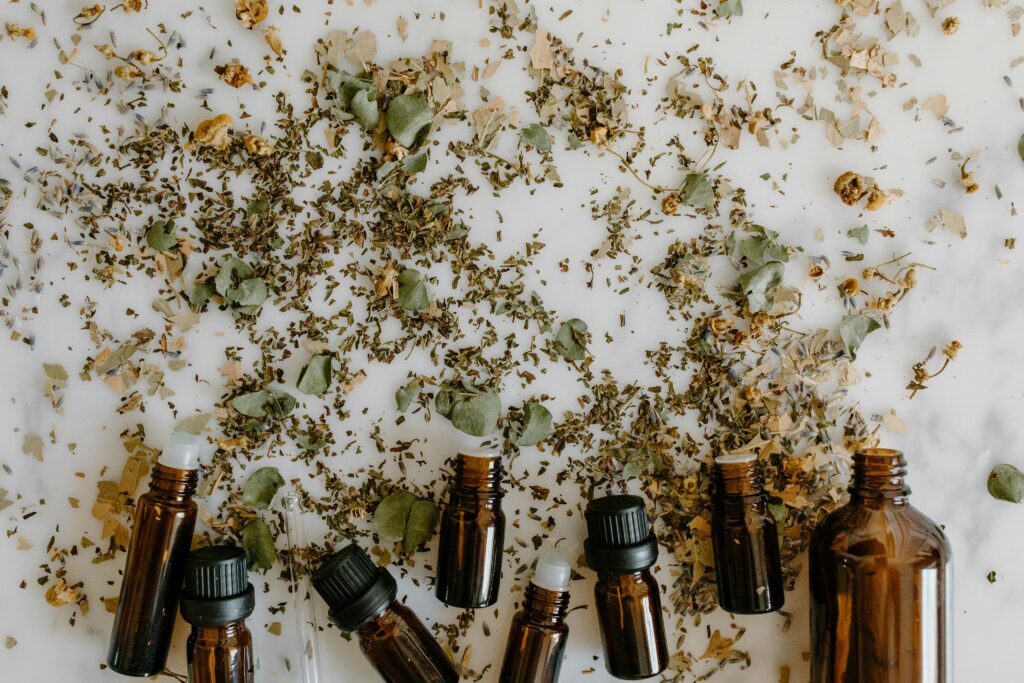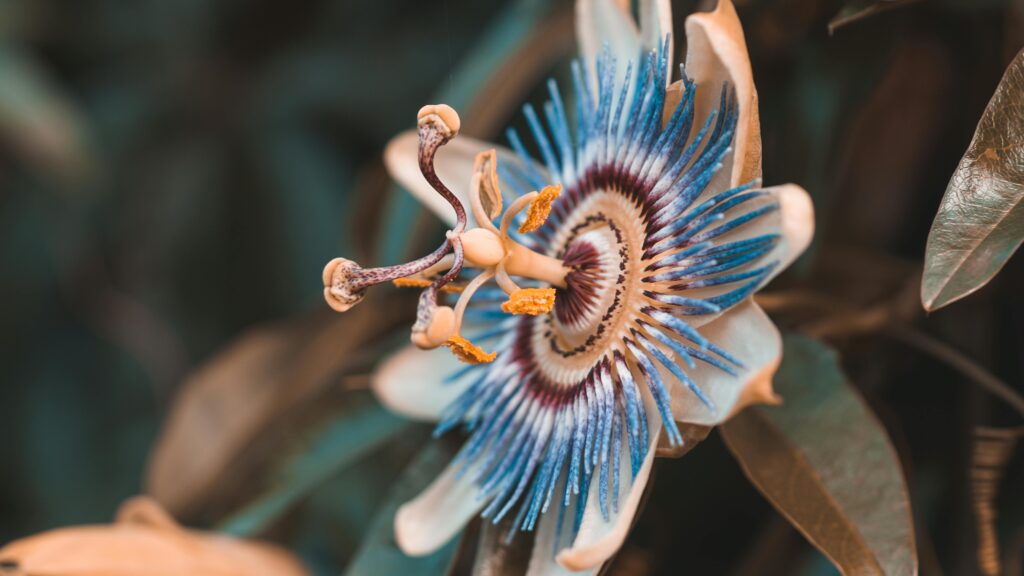Anxiety is one of the most common mental health challenges today, affecting millions worldwide. While medications and therapy remain standard treatments, natural remedies such as herbal teas are becoming increasingly popular. Among them, passionflower tea has gained attention as a soothing herbal drink that may calm restless thoughts and promote relaxation. But how effective is it really? In this guide, we’ll explore the benefits, risks, and scientific evidence behind passionflower tea for anxiety.
What Is Passionflower Tea?
History and Traditional Use
Passionflower (Passiflora incarnata) is a climbing vine native to North and South America. For centuries, Indigenous communities used its leaves, flowers, and stems as a natural remedy for insomnia, stress, and nervousness. European settlers later adopted it, and today it’s widely available as tea, tincture, and supplements.
Types of Passionflower Used in Tea
The most common species used in teas is Passiflora incarnata, though other types such as Passiflora edulis (the passionfruit plant) are more commonly known for their fruit. Herbal tea blends typically use dried leaves and flowers to maximize calming effects.
How Passionflower Tea Helps with Anxiety
The Role of GABA in the Brain
Passionflower tea is believed to increase levels of gamma-aminobutyric acid (GABA) in the brain. GABA is a neurotransmitter that reduces brain activity, helping you feel calmer and less anxious. This mechanism is similar to how some anti-anxiety medications work—though in a much gentler way.
Passionflower vs. Other Herbal Teas for Anxiety
Unlike chamomile, which primarily promotes relaxation, passionflower is more targeted toward restlessness and overthinking. It works well for people who struggle with racing thoughts, especially in the evening.

Benefits of Passionflower Tea for Anxiety Relief
Reducing Restlessness and Nervous Thoughts
Many people report that passionflower tea helps quiet mental chatter, making it easier to focus and feel at ease.
Supporting Relaxation and Calm
Its mild sedative effect relaxes the nervous system, making it useful for individuals who experience physical tension from stress.
Improving Sleep Linked to Anxiety
Because passionflower supports GABA activity, it may also promote better sleep. For people whose anxiety keeps them awake at night, a cup of passionflower tea before bed can be helpful.
Scientific Evidence on Passionflower and Anxiety
Clinical Trials and Research Findings
Research supports the traditional use of passionflower for anxiety. A study published in the Journal of Clinical Pharmacy and Therapeutics found that passionflower extract was as effective as the medication oxazepam in reducing symptoms of generalized anxiety disorder—without impairing job performance.
Another trial showed that patients given passionflower before surgery had lower anxiety levels compared to those who received a placebo.
Expert Opinions on Effectiveness
While more studies are needed, experts generally agree that passionflower tea may provide mild to moderate anxiety relief and can complement other treatments.
How to Use Passionflower Tea for Anxiety
Best Time of Day to Drink
- Evening: Best for calming racing thoughts before bed
- Afternoon: Helpful if you experience daytime restlessness
Recommended Dosage and Frequency
Most herbalists suggest 1–2 cups daily, brewed with 1 teaspoon of dried passionflower steeped for 5–10 minutes.
Blending Passionflower with Other Calming Teas
For enhanced relaxation, passionflower can be combined with:
- Chamomile – for deep sleep
- Lavender – for stress relief
- Lemon balm – for mood lifting
Possible Risks and Side Effects
Who Should Avoid Passionflower Tea
- Pregnant or breastfeeding women (insufficient safety data)
- Children under 6 years old
- People scheduled for surgery (due to its sedative properties)
Interactions with Medications
Passionflower tea may enhance the effects of:
- Sedatives or anti-anxiety medications
- Antidepressants
- Blood thinners
⚠️ Always consult a healthcare provider before using passionflower alongside prescribed medication.
Passionflower Tea vs. Anxiety Medication
While passionflower may help mild anxiety, it’s not a replacement for prescribed medications in cases of severe anxiety disorders. Unlike pharmaceuticals, passionflower works gradually and has fewer side effects, but its effectiveness varies from person to person.
FAQs on Passionflower Tea and Anxiety
1. How quickly does passionflower tea work for anxiety?
Most people feel effects within 30–45 minutes after drinking.
2. Can I drink passionflower tea daily?
Yes, but it’s best to limit intake to 2–3 cups per day.
3. Is passionflower tea safe for children?
Not recommended for children under 6. Older children should only use it under medical supervision.
4. Can passionflower tea make anxiety worse?
Unlikely, but excessive consumption may cause drowsiness, dizziness, or stomach upset.
5. What’s the best dosage of passionflower tea for anxiety?
Start with 1 cup daily and increase to 2–3 cups as needed, depending on tolerance.
Conclusion: Can Passionflower Tea Help Ease Anxiety?
Passionflower tea is a gentle, natural remedy with centuries of use for calming the mind and supporting restful sleep. Scientific evidence suggests it can be effective for mild to moderate anxiety, especially for those experiencing restlessness and overthinking. While it should not replace prescribed treatment for severe anxiety, it can serve as a supportive, soothing ritual for stress relief.
By incorporating passionflower tea into your daily routine, you may find a simple yet powerful way to manage anxiety—one calming cup at a time.
🔗 External Resource: National Center for Complementary and Integrative Health – Passionflower
read more:
